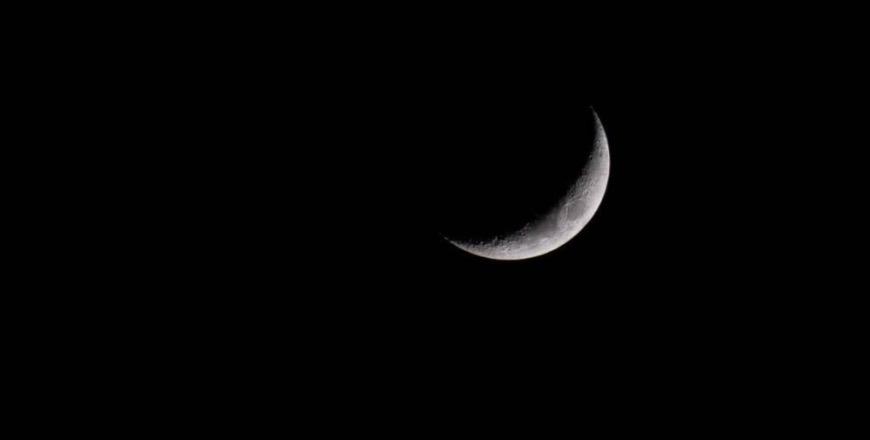You are here
Ramadan starts Monday as debate on new moon sighting renews
By Mohammad Ghazal , Agencies - Jun 05,2016 - Last updated at Jun 06,2016
Muslim scholars and astronomers, headed by Chief Islamic Justice Ahmad Hilayel, meet Sunday before sunset to watch for the crescent to determine the start of Ramadan (Photo by Osama Aqarbeh)
AMMAN — The holy month of Ramadan begins Monday in Jordan, Chief Islamic Justice Ahmad Hilayel announced on Sunday.
Hilayel said the crescent moon (hilal) of the new lunar month was spotted in Jordan on Sunday, which makes Monday the first day of Ramadan, during which Muslims observe dawn-to-dusk fasting.
Saudi Arabia's state TV announced the new moon of Ramadan was spotted on Sunday evening, the Associated Press reported. Local media in Indonesia, the world's most populous Muslim country, also said Muslims there would begin fasting Monday, as well as Muslims in Singapore, Yemen, Lebanon, Syria, Qatar, Kuwait, Egypt, the United Arab Emirates, Afghanistan and Palestine.
In Islam, to determine the start of lunar months which last either 29 or 30 days, including Ramadan, people watch for the crescent, and those who sight the new moon report to the Sharia court to testify.
However, the usual practice is that Muslim scholars and astronomers meet before sunset on the 29th of Shaban, the lunar month preceding Ramadan, to spot the new moon, headed by the chief Islamic justice, who traditionally has the final say over the issue.
The same applies to the end of Ramadan, the ninth month of the Muslim calendar, as scholars and experts meet on the 29th of the month to decide, upon sighting or lack of the hilal sighting, whether to complete 30 days of fasting, or announce Eid Al Fitr, the holiday on the first of Shawwal when Muslims break their fast.
The issue of deciding the first of Ramadan or Shawwal has been a debate over the past years, especially ahead of the fasting season.
On Sunday, scholars and astronomers said that astronomical calculations are totally reliable and accurate in deciding when the Muslim fasting or end of fasting is, but Islamic tradition requires spotting the new moon with the bare eye.
On disparities among neighbouring Muslim countries, where Ramadan starts on different days, they said “political bickering” is sometimes behind the differences.
“We currently know when Ramadan starts every year until 2050 according to astronomical calculations, but in Jordan and many Arab and Muslim states, the start of the month is decided on the spotting of the crescent with the naked eye as indicated by Hadith [Sayings of Prophet Mohammad]. Scholars cannot but heed the rule,” Chief Islamic Justice Department Astronomer Imad Mujahed told The Jordan Times on Sunday.
On the occasion, Chief Islamic Justice Ahmad Hilayel said the department follows the birth of the crescent on all months not only in Ramadan to make sure that the decision on Ramadan and Shawwal are accurate.
He added that Jordan allocated six places to spot the crescent (hilal), where a telescope is used nowadays.
In Islam, to determine the start of Ramadan, people look for the crescent and anyone who claims to have seen it reports to a Sharia court to testify. This method is still employed in Saudi Arabia and a number of other countries, but several other Muslim countries use astronomical calculations to verify the claim.
In Jordan, the Iftaa (religious opinion) Council handles the issue of the sighting. Astronomy is also used to validate the testimony of individuals, according to the council.
Political differences interfere even in this issue. Mujahed, the astronomical expert hired by the highest religious authority, said if the crescent is spotted in Saudi Arabia for example and not in Jordan, the latter can follow Saudi Arabia. “But many countries, unfortunately, do not do the same,” said the expert.
Mohammad Aydi, associate professor of Fiqh (Islamic jurisprudence), confirmed that the fasting of countries that rely on astronomical calculations is definitely correct and accurate.
“The sighting of the crescent was the only available method at the time of the Prophet, but now we have telescopes, satellites and advanced astronomical calculations that we can use. This is not against the teachings of the Koran,” Aydi told The Jordan Times on Sunday.
“Astronomical calculations can accurately tell us when Ramadan will start in the coming decades. In Jordan, we started to use these calculations in addition to spotting the crescent by the naked eye,” the scholar said.
“We need to reach an agreement over this…Unfortunately, politics sometimes gets in the middle of this,” Aydi added.
Related Articles
AMMAN — The holy month of Ramadan begins on Friday in Jordan, Grand Mufti Abdulkarim Khasawneh announced on Thursday.Khasawneh said that the
AMMAN — The holy month of Ramadan begins on Tuesday in Jordan, Grand Mufti Abdulkarim Khasawneh announced on Sunday.Khasawneh said that the















